The growing popularity of non-lethal self-defense weapons like tasers requires civilians to understand their state's specific regulations, which vary widely. Legal ownership involves adhering to rules including age restrictions, safety training, background checks, and proper use guidelines. Compliance ensures responsible deployment while maintaining public safety for these legal non-lethal self-defense weapons.
“In today’s world, civilians increasingly seek non-lethal self-defense options. This has led to a growing interest in civilian taser ownership, but navigating state laws and regulations can be complex. This article provides an in-depth look at the legal framework surrounding civilian taser ownership, focusing on state-specific requirements, licensing guidelines, safety measures, and responsible use. Understanding these aspects is crucial for those looking to legally acquire and utilize non-lethal self-defense weapons.”
- Understanding Non-Lethal Self-Defense Weapons
- Legal Framework for Civilian Taser Ownership
- State-Specific Requirements and Regulations
- Licensing and Training Guidelines
- Safety Measures and Responsible Use
Understanding Non-Lethal Self-Defense Weapons
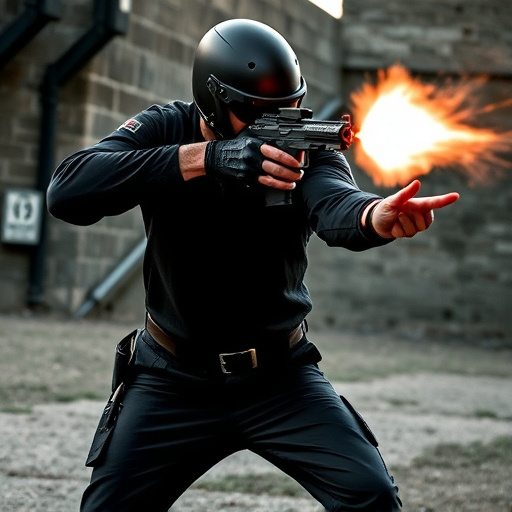
Non-lethal self-defense weapons, such as tasers, have gained popularity among civilians seeking effective personal protection. These devices are designed to incapacitate an aggressor temporarily without causing permanent harm or death. Understanding the legal status of non-lethal self-defense weapons is crucial for responsible ownership and use. Each state has its own regulations governing civilian access to tasers, determining who can possess them, under what circumstances, and with what restrictions.
For individuals looking to acquire a taser for personal safety, it’s essential to research their state’s specific laws. Legal non-lethal self-defense weapons must typically be purchased from licensed dealers and come with proper training and safety protocols. Some states may require users to pass a background check or have a valid reason for ownership, such as a professional or law enforcement background. Compliance with these regulations ensures responsible use and helps maintain public safety.
Legal Framework for Civilian Taser Ownership
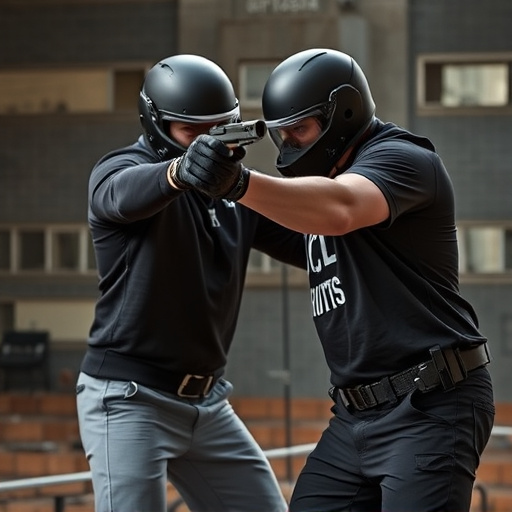
In many jurisdictions across the globe, there’s a growing trend towards civilian ownership of non-lethal self-defense weapons, such as tasers, to protect themselves and their loved ones. The legal framework for this varies widely from state to state. Some regions allow unrestricted access to tasers for anyone over a certain age, while others impose stringent requirements like permit applications, background checks, and training courses. These laws are designed to balance the right to self-defense with public safety concerns, ensuring that only responsible individuals can possess and use such devices.
The regulations often consider factors like the individual’s criminal history, mental health status, and any prior violence or abuse issues. Some states also differentiate between personal and concealed carry, with additional restrictions for the latter. Understanding these legal frameworks is crucial for anyone interested in owning a taser as a non-lethal self-defense weapon.
State-Specific Requirements and Regulations
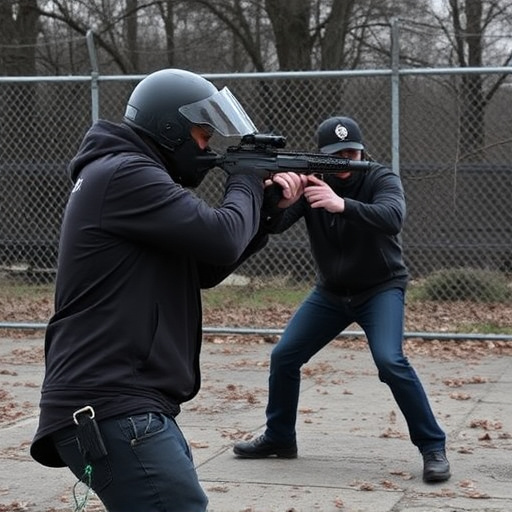
Each state in the US has its own set of regulations and requirements for civilian ownership of tasers, or non-lethal self-defense weapons. These laws vary widely, with some states allowing unrestricted possession while others mandate specific permits or licenses. Some key aspects to consider include age restrictions, training or safety courses that might be mandatory, and the type of taser allowed (e.g., voltage levels). Understanding these state-specific requirements is crucial before purchasing a taser for self-defense purposes.
For instance, some states classify tasers as firearms, subjecting them to similar regulations, while others have dedicated non-lethal weapon categories with less stringent rules. Certain states may also limit the use of tasers for self-defense only, while others allow their use for protection of property or other circumstances. It’s essential to review and comply with local laws to ensure legal ownership and responsible usage of these non-lethal self-defense weapons.
Licensing and Training Guidelines
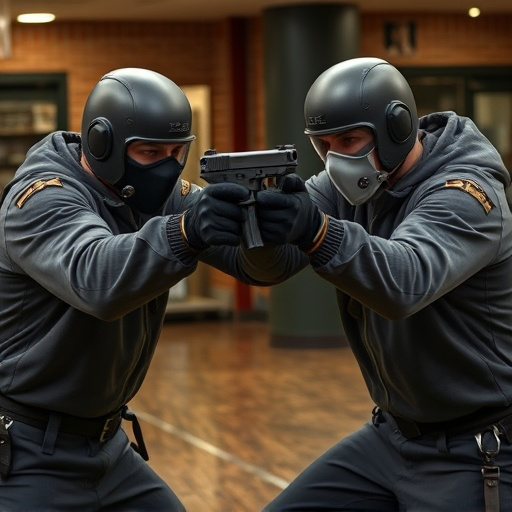
In many states, civilians can legally own non-lethal self-defense weapons like tasers under specific conditions. One such requirement is a thorough understanding of state laws and regulations regarding taser ownership. Licensing and training guidelines vary across jurisdictions, but they generally involve obtaining a permit or license to purchase and carry a taser. These licenses often require individuals to complete a comprehensive training program that covers safe handling, usage, and legal implications.
The training curriculum typically includes practical demonstrations on how to deploy a taser effectively while minimizing the risk of causing harm. It also educates owners about when and how to use tasers as a last resort for self-defense. Some states might mandate regular refresher courses to ensure users stay updated with the latest safety protocols. Adhering to these licensing and training requirements is crucial for responsible taser ownership, ensuring that citizens can exercise their right to carry non-lethal self-defense weapons while respecting legal boundaries.
Safety Measures and Responsible Use
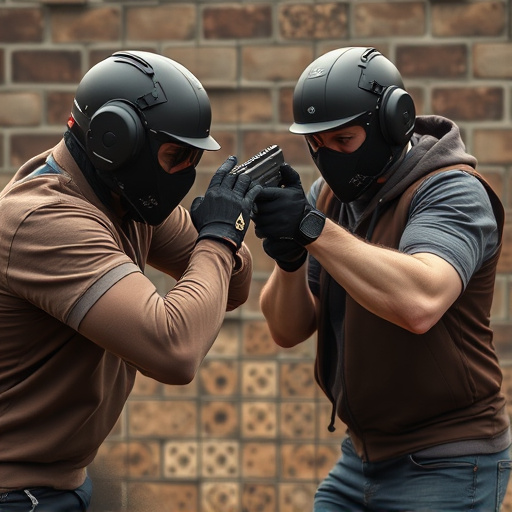
When considering civilian Taser ownership, it’s crucial to understand the safety measures and responsible use guidelines that come with such a decision. Tasers, as non-lethal self-defense weapons that are legal in many states, offer a means of immobilizing an assailant without causing permanent harm. However, their use should be approached with utmost caution and adherence to local laws. Users must undergo proper training to ensure they can deploy the device safely and effectively, minimizing the risk of injury to themselves or bystanders.
Responsible ownership includes keeping Tasers secured and out of reach of unauthorized individuals, much like any other firearm or weapon. It’s also important to familiarize yourself with the specific laws in your state regarding civilian Taser ownership, including storage requirements, restrictions on where they can be carried, and any reporting obligations. These measures are essential to ensure public safety and responsible use of non-lethal self-defense weapons.
Civilian taser ownership, while offering an option for non-lethal self-defense weapons, is subject to stringent state laws and regulations. Understanding these requirements, from licensing to safety measures, is crucial before considering the acquisition of a taser. Each state has its own set of rules, ensuring responsible use and public safety in the private possession of these powerful tools. By adhering to these guidelines, individuals can exercise their right to defend themselves while navigating the legal landscape of civilian taser ownership.
